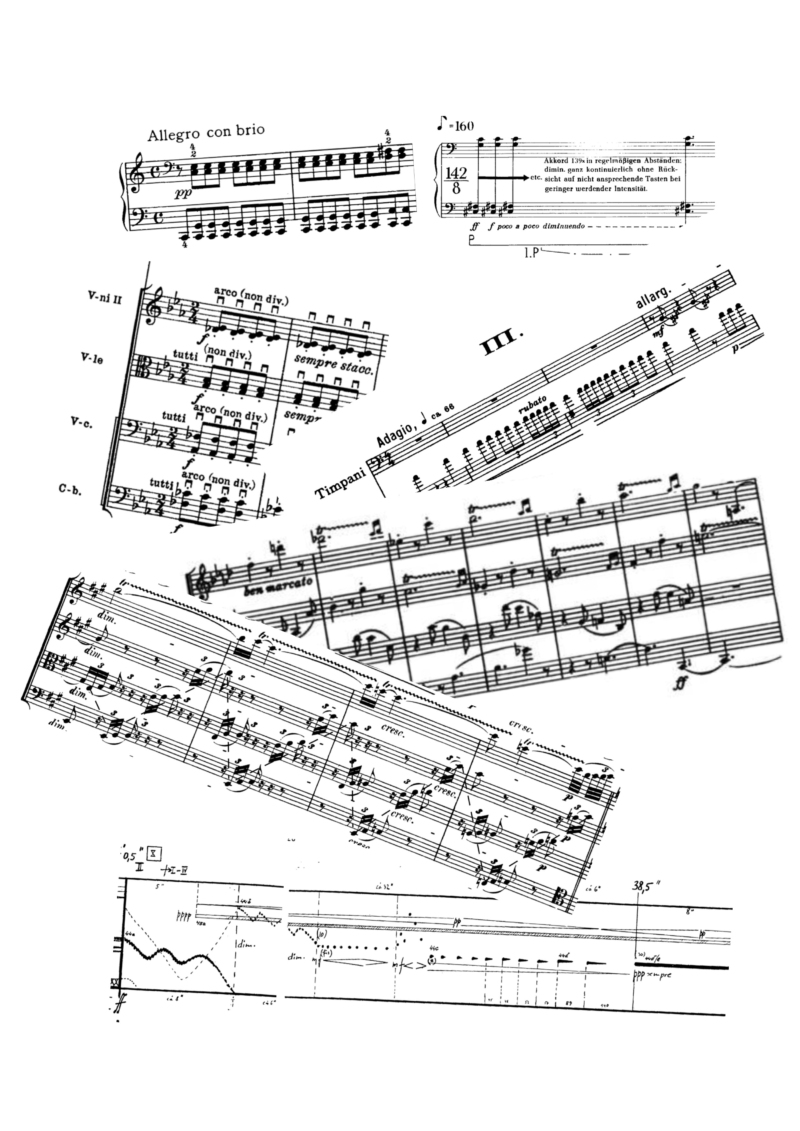— This event has already taken place —
History of the granulation: from Beethoven to Stockhausen
Organizer: Beniamino Fiorini
—
Fri 18 August 2023, 13.00 – 14.00
OS 4

In the 40s and 50s, the Nobel prize for physics Dennis Gabor demonstrated how all sounds, despite being perceived as continuous, are actually made up of the sum of very numerous "musical quanta" or "grains". In the 1950s Gabor held courses in Darmstadt on his new discoveries. The development of electronic instruments (like the pulse generator) allowed composers such as Stockhausen and Xenakis to master and compose the world of microsound for the first time.
In this meeting we will observe the history of microsounds (Curtis Roads) in the field of instrumental music from Beethoven to Stockhausen. In particular Beethoven is interpreted as the impulse generator of the modern reflection on time (the temporal unity of the musical phenomenon) which will be systematized by Stockhausen in the essays "How time passes" and "The concept of unity in electronic music". In this path we will observe in particular the evolution of rhythm from a parameter of support of the melody to a unifying element of the entire musical phenomenon. The research is divided into three chapters (Beethoven, Bartók and Stockhausen) in which we will observe three important paradigm shifts in the status of rhythm.
This meeting is based on my Master's thesis (History of granulation: from Beethoven to Stockhausen), which at the same time forms the theoretical basis of my string quartet "Kontaktlos" (presented these days in Darmstadt by Fabrik Quartet and Mivos Quartet). Kontaktlos is an homage to the tradition of the granulation, which is still very present in todays music, but at the same time is an invitation to take distance to it and to look for new paradigms to further develop the so called “absolute music”.